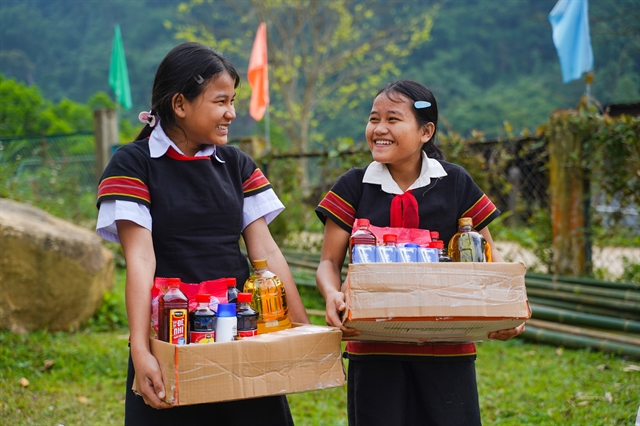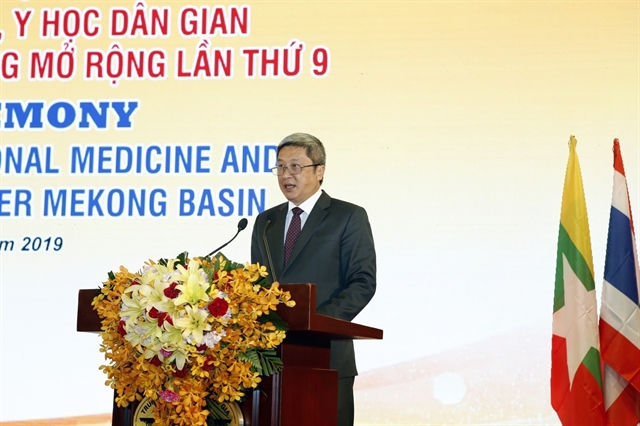 Society
Society

The development of traditional medicine and pharmacy in the cause of protecting and taking care of the people's health has become an important part in activities of countries in the Mekong sub-region, said Nguyễn Trường Sơn, Deputy Minister of Health.

|
| Nguyễn Trường Sơn, Deputy Minister of Health, speaks at the conference held in Hà Nội on Thursday on traditional medicine and folk medicine in the Greater Mekong basin. — VNA/VNS Photo Dương Ngọc |
HÀ NỘI — The development of traditional medicine and pharmacy has become an important part in health activities of countries in the Mekong sub-region, said Nguyễn Trường Sơn, Deputy Minister of Health.
He was speaking at a conference held in Hà Nội on Thursday on traditional medicine and folk medicine in the Greater Mekong basin.
“Traditional medicine has been playing an important role in the development of the healthcare system,” he said.
“The government of Việt Nam as well as those in Southeast Asia and Mekong sub-region has directed relevant agencies to study and preserve traditional medicine, combining achievements of the modern scientific advances to develop efficient and sustainable medicine.”
Addressing the event, Nguyễn Thế Thịnh, deputy head of Administration of Traditional Medicine under the Ministry of Health, said Việt Nam now has 67 traditional medicine hospitals. Traditional medicine has been expanded to nearly 85 per cent of healthcare centres at communal level.
Annually, an estimated 30 per cent of patients are diagnosed and treated with traditional medicine or a combination of traditional and western medicine.
To promote the development of traditional medicine, he said, it was necessary to complete the management of traditional medicine system and improve policies about it.
Attention should be paid to develop the human resource as well as medicinal herbs, Thịnh said.
He also emphasised the need to strengthen the role of Traditional Medicine Association in medical treatment and that budget spending for traditional medicine should be hiked.
Bouleuane Douangdeuane, deputy director of Institute of Traditional Medicine under the Lao Ministry of Health, said Lao people had their own traditional healing system which was handed down from generation to generation by various approaches.
“Utilisation of traditional medicine as well as herbal medicines becomes a pertinent and necessary element of Primary Health Care for solving the problems of supply of local communities,” he said.
Challenges faced in Laos were the shortage of financial resource as well as availability of traditional medicine at health care facilities, he said.
Poor law enforcement and the lack of experience in granting licences for training activities relating to traditional medicine were also a problem.
Douangdeuane suggested the Lao government set regulations relating to traditional medicine in the health sector to push up traditional medicine practice.
The preservation of herbal medicine which was on the verge of becoming extinct and the renewal of traditional medicine formulary were also a must, he said.
Wu Zhendou, deputy director general of the Department of International Cooperation of the State Administration of Traditional Chinese Medicine of China, said Việt Nam and China had long-term cooperation in the field. The two countries have exchanged and cooperated in terms of health care within the China-ASEAN Framework.
He proposed ways to intensify cooperation between Mekong sub-region which include database sharing and human resource training.
The exchange between the countries should be renovated to promote natural and human resources of the countries for mutual benefit, he said.
Participants at the meeting agreed to enhance the traditional medicine production ability to safeguard people’s health.
Traditional herbal medicine on the verge of extinction should be protected.
They also emphasised the need to set up an effective cooperation mechanism between countries in Mekong sub-region. — VNS